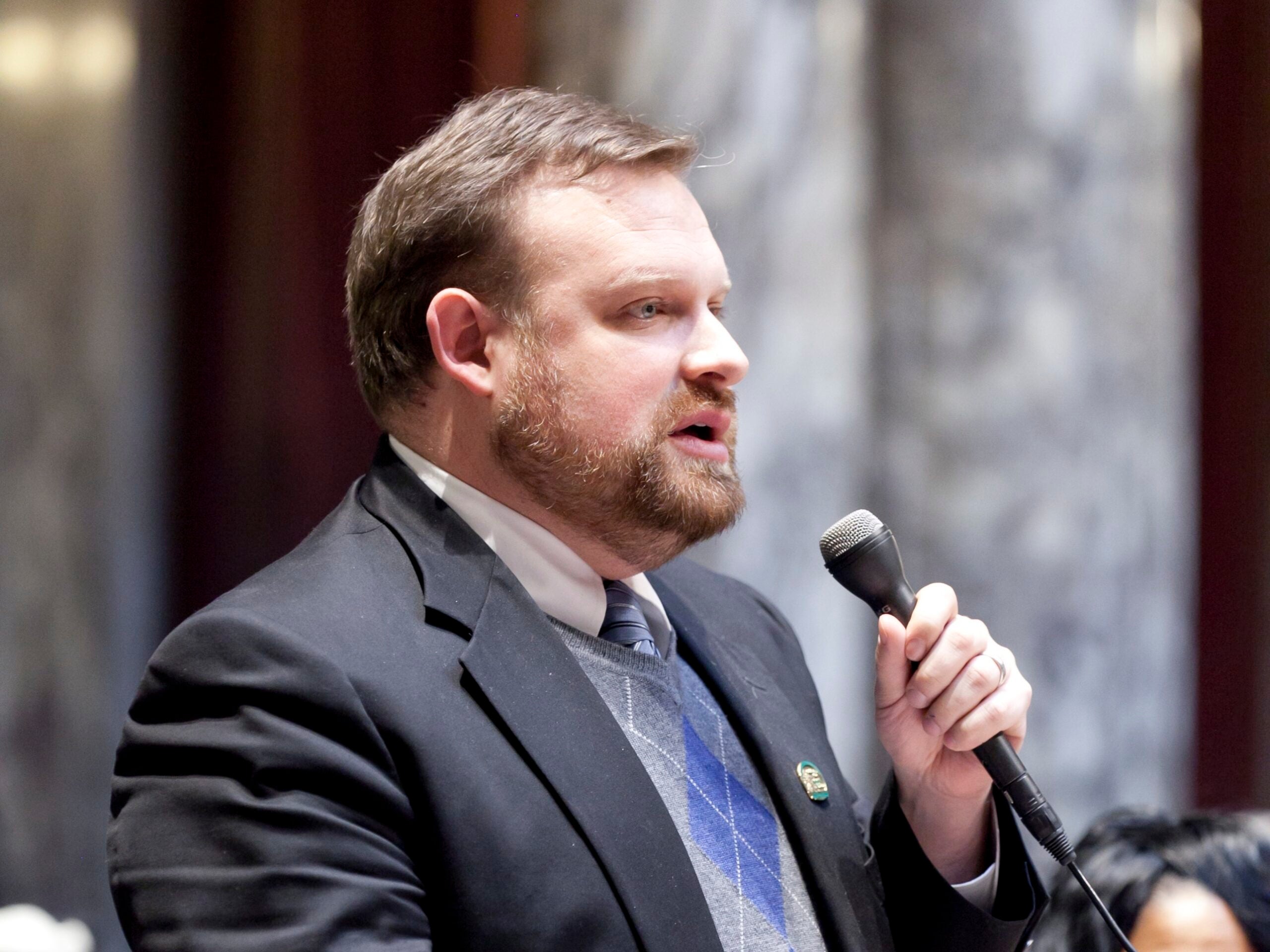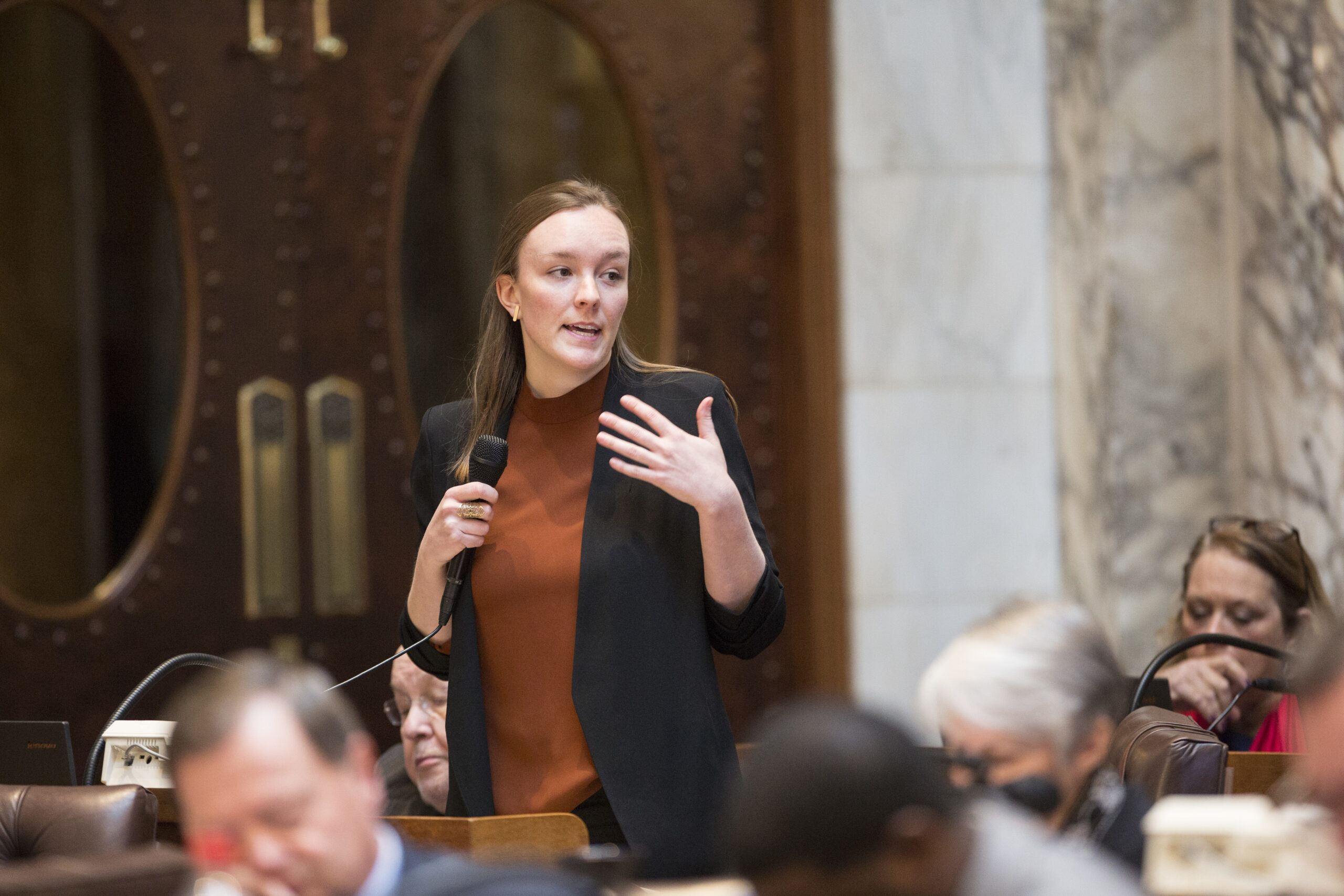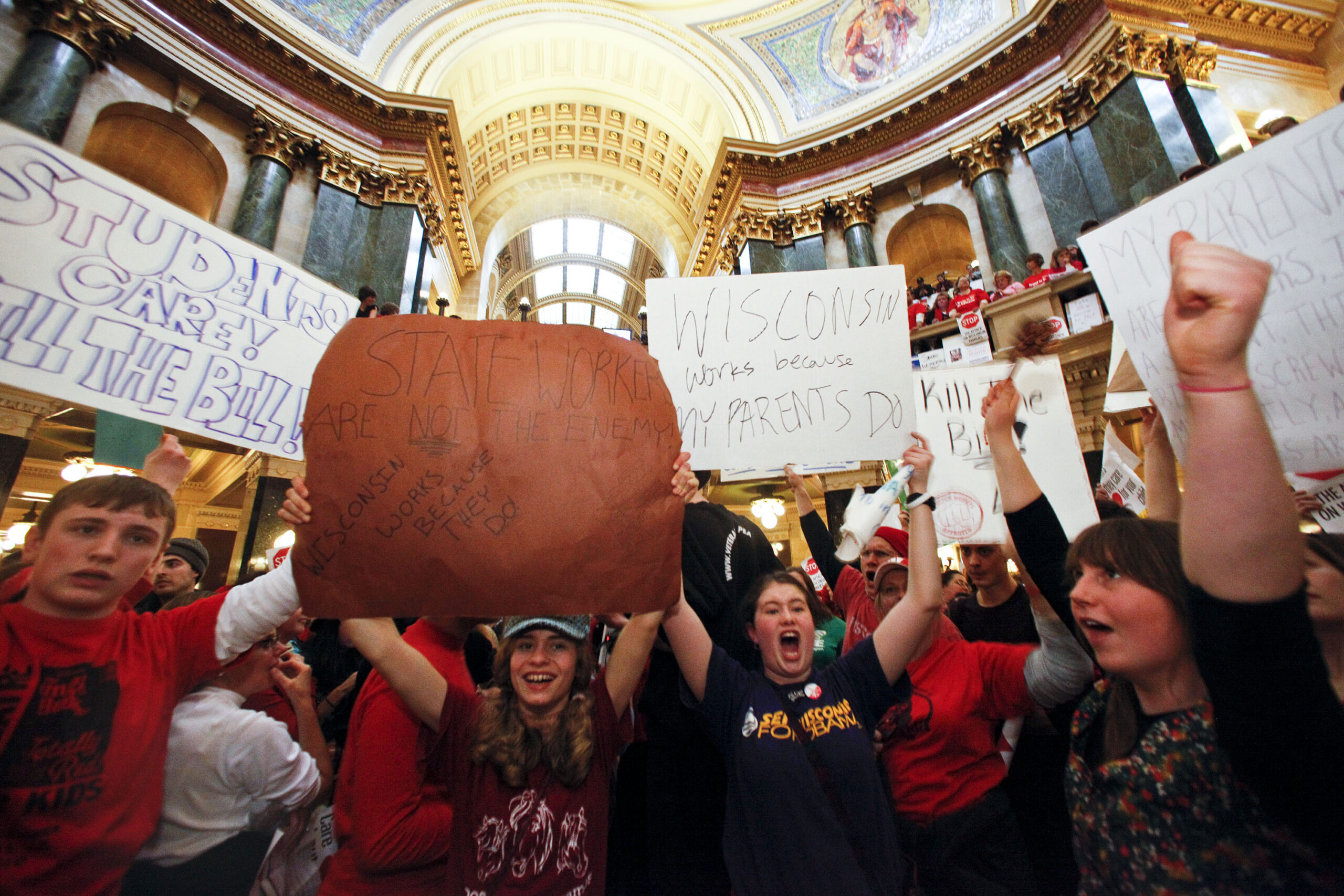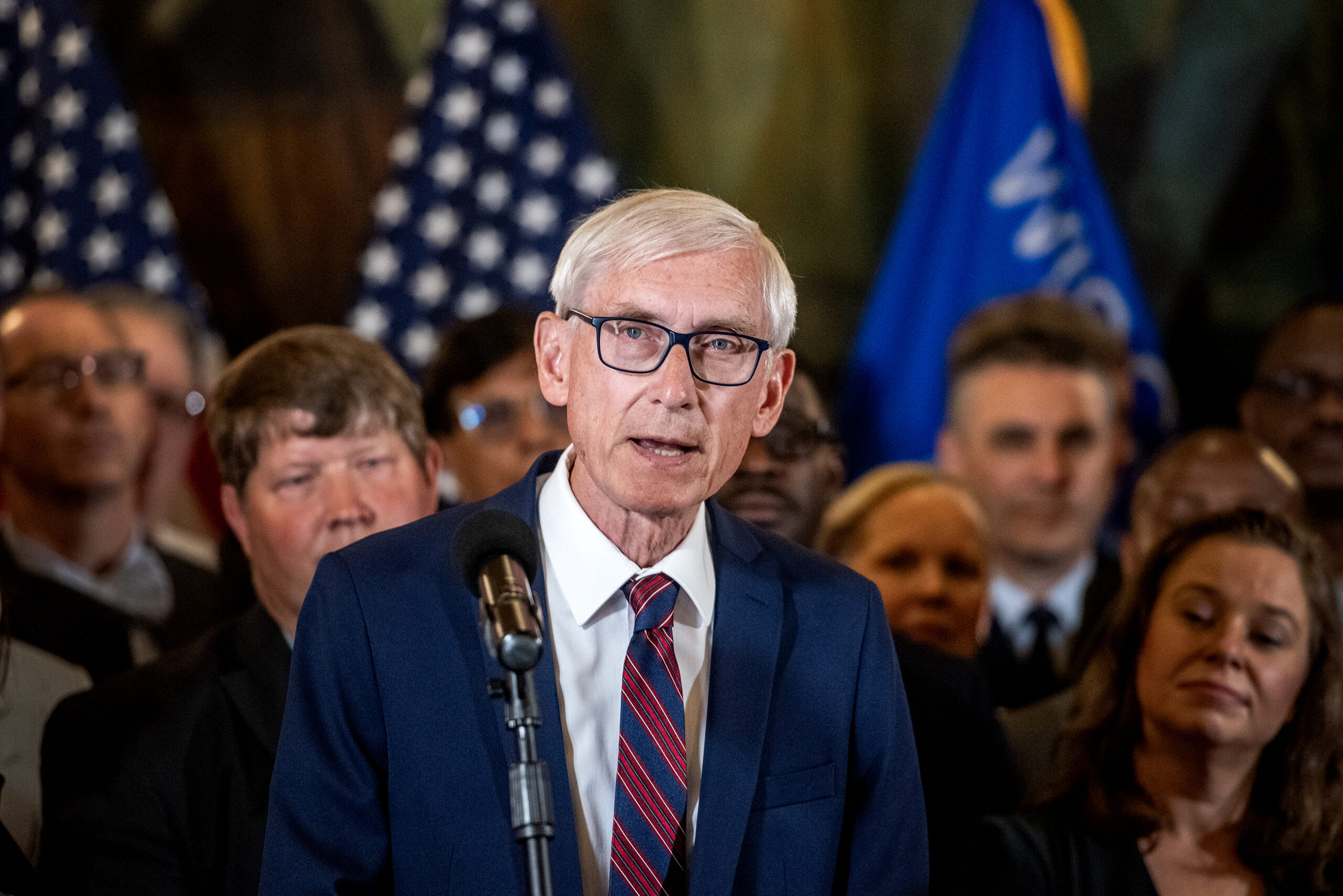A Wisconsin lawmaker is bringing back a bill that would allow state and university employees to sue the state for violations of federal discrimination laws.
This is the fourth attempt by state Rep. Cory Mason, D-Racine, to bring the bill before the Legislature. He re-introduced it again this year just before Dr. Martin Luther King Jr. Day, calling it a chance to remind people how important civil rights protections are.
“It’s been frustrating. Under both Democratic and Republican administrations, we have yet to make it an issue salient enough to move it onto the agenda,” Mason said. “My hope is by doing this around the Martin Luther King holiday, we might engender some appreciation about civil rights and how important it is to protect, to keep those rights that people before us fought so hard to pass down to their future generation.”
Stay informed on the latest news
Sign up for WPR’s email newsletter.
U.S. Supreme Court rulings say that unless a state waives its sovereign immunity, it cann’t be sued for damages. Mason said the bill would waive the state’s immunity and restore rights to state and university workers. He said both Minnesota and Illinois are states that have passed legislation like this.
Christopher Kuczynski, an assistant legal counsel with the U.S. Equal Employment Opportunity Commission, said people can turn to the EEOC for help with these issues, but the commission is only able to litigate a small number of the charges it receives. He said legislation like this could be helpful to people.
“It could enable individuals — without having to depend on whether the government did so — it would enable individuals to go into court and assert their rights against state employers under either the Age Discrimination and Employment Act or the American Disabilities Act,” Kuczynski said, “and obtain both injunctive relief and monetary relief.”
Mason said both Democrats and Republicans have signed on to co-sponsor the bill since he began looking for supporters.
Wisconsin Public Radio, © Copyright 2025, Board of Regents of the University of Wisconsin System and Wisconsin Educational Communications Board.







